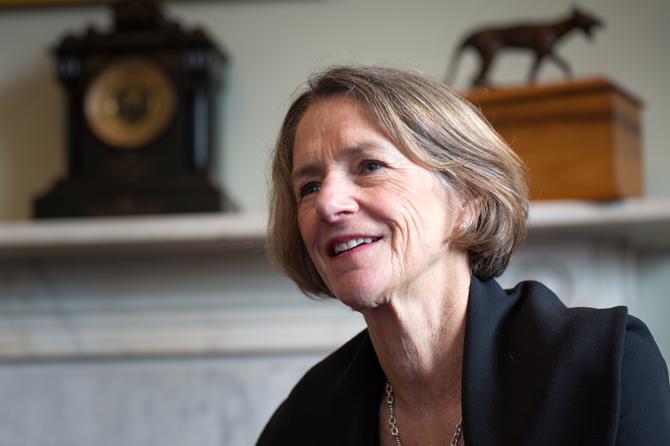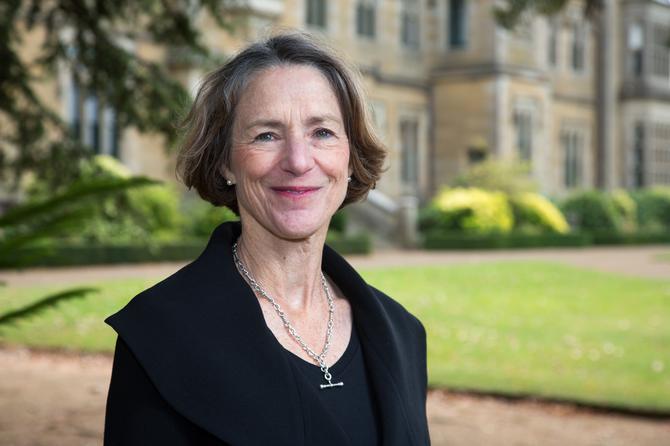International Women’s Day has two purposes: to celebrate the social, cultural and political achievement of women and to accelerate gender parity. We spoke to Her Excellency, Professor the Honourable Kate Warner, AM, Governor of Tasmania, to celebrate her position and to discuss gender parity.
Her Excellency, Professor the Honourable Kate Warner, AM, Governor of Tasmania is the first female to hold her position. But she will be thrilled when that is not such a talking point, because she is a strong advocate for gender parity.
Governor Warner is interested in the issues of family violence, sexual violence, attitudinal change and the underlying causes for that, and education. She is particularly interested in encouraging improved education in Tasmania.
Governor Warner is an Emeritus Professor of Law at the University of Tasmania. While the law in the 1970’s was quite sexist, she believes that this is no longer the case.
We’ve gone beyond the need for legal change. The main contributor to the parity gap is the social norms about gender roles.
“There is currently an 18.8% pay gap between women and men in full time roles but perhaps more troubling, is that women have just 47% of the superannuation of men.
“This is because women are more likely to work part time or not at all, when they start a family.

For families that have children under 16 years of age, 60% of men who work full time have a partner that works part time or not at all. But only 3% of women with children under 16 who work full time have a partner that works flexibly or not at all.
Governor Warner believes that to address parity, both men and women should be encouraged to work flexibly in the workplace. A transition that requires change in the behaviour of men, women and workplaces.
“Many women drop out of the workforce when they start a family and it can be hard to get back in.
“It is very important if you possibly can to stay in the workforce, to not drop out for too long. Keep doing something if you can. Otherwise, you can lose your confidence.
“And it is also important to have a partner that is willing to be flexible and accommodating. If your partner is willing to work flexibly too, then both parents can have a career.”
Governor Warner said that social norms within the workplace can make this hard.
Part-time roles are often valued less than full time positions. It can be regarded as a lack of commitment to leave early to pick up children from school, for either men or women. Sometimes more so for men because it is not expected that they will fulfil this role.
Governor Warner said this is a good example of where social attitudes are falling behind the law.
“Legally men are able to take maternity leave and work flexibly to help look after children, but families are choosing not to do that. There is a lot of pressure on men to be the primary bread winner.
“But still women in the work force often feel guilty for leaving early to pick up children but they also feel guilty if they don’t. It is a difficult situation.”
There is a lot of evidence, according to Governor Warner, that shows that children actually benefit from having two parents that work.
Research shows that there are real benefits to families who have mothers in the workplace. Daughters were found to be more successful in the long term and sons became more helpful spouses.
Governor Warner said that it can be difficult to find the right balance, but there are real benefits to doing so. Not just for families, but for the economy.

Closing the parity gap has been shown to have enormous benefits for economies, she said.
Governor Warner is no stranger to juggling family and career.
“I came from quite a privileged background in the sense that my parents encouraged me to pursue a career and be able to support myself. My mother didn’t have the opportunity to finish her schooling and I think that she always resented that.
“I had hoped to go into practice as a lawyer when I finished university, but I married and fell pregnant, and there was no flexibility in the workplace then. This is why I pursued an academic career, because it afforded more flexibility.”
“I am also fortunate to have a partner that has been willing to work flexibly to allow me to pursue my career. I currently work full time in my role, and my husband does not.”
Governor Warner is passionate about encouraging improved education. She said the parity gap is evident within academic circles also. While 40% of university graduates are women, only 24% of Professors are women.
“We’re not doing a good enough job of nurturing female talent. There are also less women choosing the higher paid fields of science, technology, engineering and mathematics.
“I would encourage more women to choose these fields at school and university. It has already happened in medicine, it would be wonderful to see a similar trend in the science and technology fields.”
The World Economic Forum Gender Gap report 2015 shows that it will take 117 years to close the gender gap. International Women’s Day strives to shorten that time frame.
What can you do to close the gap?
Her Excellency Professor the Honourable Kate Warner AM, was sworn to Office at Government House on Wednesday 10 December 2014.
Previously she was Professor, Faculty of Law, at the University of Tasmania and Director of the Tasmanian Law Reform Institute. She also held the positions of Dean, Faculty of Law, and Head of School at the university.
On 26 January 2014 Her Excellency was awarded an Order of Australia (AM) for her significant service to the law, particularly in the areas of law reform and education.